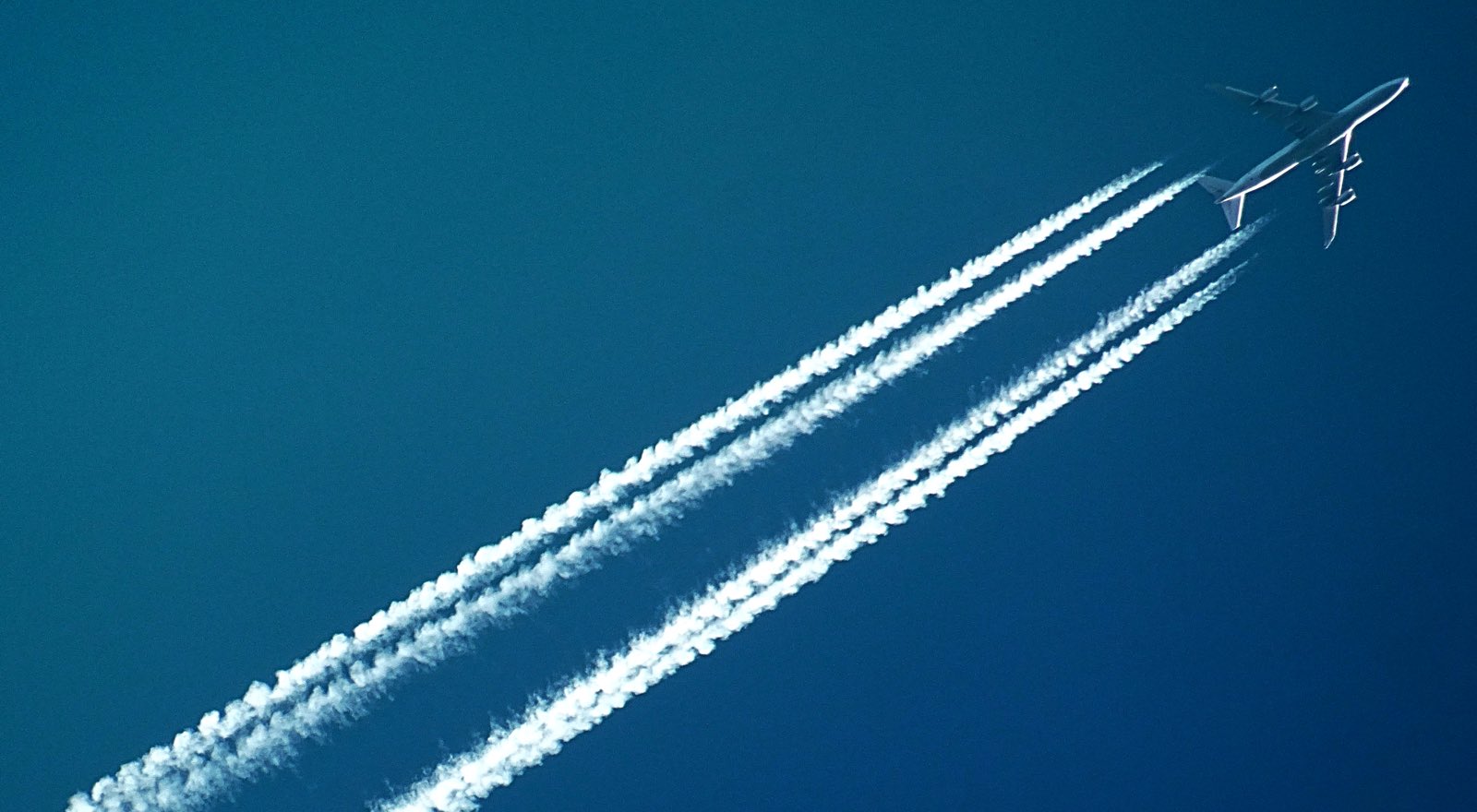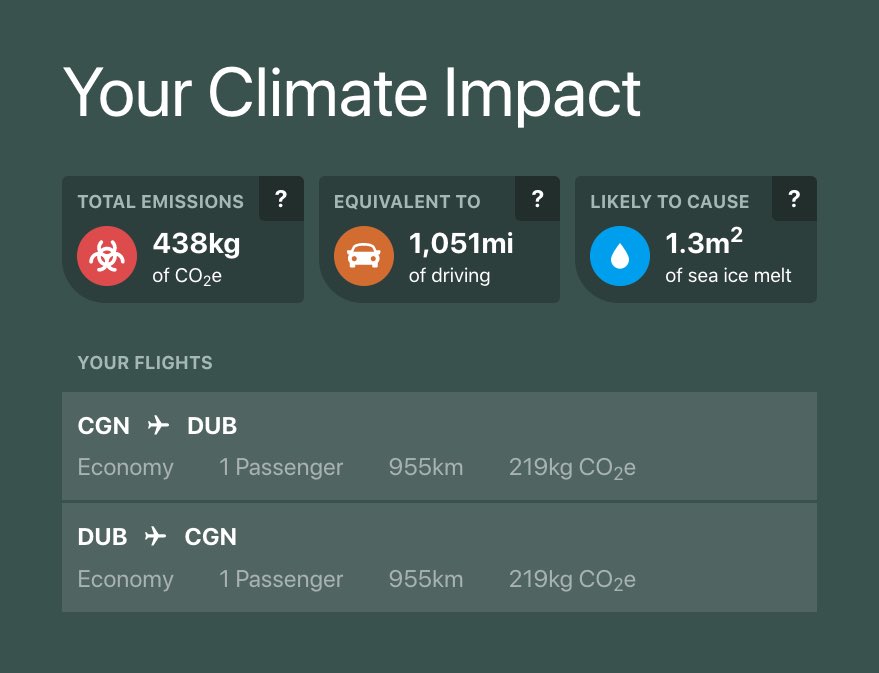
My Climate Guilt — Air Travel
A year ago I moved to Germany from Ireland. At the time I was going through a period of personal growth and self-discovery — trying to decide what I could work on to help move the world forward, while also figuring out how to adapt to living in a new country.
A year later and I’ve moved again, this time to Tokyo — and I’m not just in a different place but also a different headspace. Like many, I became woke to the extent of the climate emergency early in 2019. Aware that solving this problem was the most important effort my generation will likely ever undertake, and it requires all hands on deck doing whatever we can to lessen the damage to our environment and avoid the critical point of no return.
To help I’ve focused the last 6 months on motivating the tech community to care about the issue and start taking action. For me, that meant creating ClimateChoice and starting the Impact Makers Slack community to connect tech workers who want to help prevent climate breakdown and inspire action. Along the way, The Climate Fixathon was launched to provide an added incentive for makers to help fix the climate leading to the creation of 41 products.
One of those products is AirCare created by @bloudermilk and I. It’s a product I found myself motivated to work on thanks to one of my biggest sources of climate guilt — air travel.
This year I’ve come to realise the impact my travels have had on the environment and it’s not something I’m proud of. Even worse it’s doubtful I’ll be able to reduce my carbon footprint while I continue to live overseas.
I’m unlikely to sacrifice a trip home to see my family and friends in Ireland even though I’m now well aware that means 9,579 km of air time adding roughly 2.5 kg CO₂ to my carbon footprint. To put that another way, it is estimated emissions of that level will contribute to 8 square meters of Arctic sea ice melt. Yikes.

So we should all just stop flying right?
If only it was that easy. Unfortunately, self-sacrifice is required to make this choice and the vast majority of us are like me — not yet prepared to do so.
Flying, in my opinion, is one of the hardest things to replace or remove from the lifestyle of a 21st-century western human. Long-distance travel has become one of our favourite activities. Holidaying and business travel is ingrained in our culture. But with the true extent of the climate emergency finally breaking through and becoming a key issue across the planet will we stop or at least reduce our air travel?
My guess is most of us won’t and only a minority will reduce their air travel in a meaningful way. In fact, it’s predicted the industry will continue to grow year-on-year well beyond the 45 million flights of 2018 and its share of global emissions will increase too.
Why won’t we stop flying?
Alternative travel methods usually take a lot longer, in some cases cost more and our desire to experience whatever is on the other end of the flight is more than our desire to sacrifice today for the benefit of the future. The majority of us are still likely to prefer to not sacrifice out time, to not lose money, and to not miss out on an experience.
Until air travel requires more sacrifice to our lifestyles (for example an increase in cost due to the introduction of carbon taxes) most of us will still choose to fly.
A bigger issue is that many people still don’t understand just how harmful flying is. It’s only because I’ve gone out of my way to learn about climate change that I now understand the true impact of a flight. I’ve known for years that emissions weren’t great for the planet, but I wasn’t aware how little time we had to avert disaster.
Disaster is very much what awaits unless we can massively shrink the carbon footprint of humans.
Preventing climate disaster
I believe one of the most important things we need to do is help people understand the climate impact of their choices. Without this basic knowledge, an average person is unlikely to care. A person armed with understanding is positioned to make an informed choice. They might still choose to fly, but they also might fly a little less. They might help their family learn about the issue, and they might prioritise the environment the next time they visit a voting booth.
That’s one of the reasons why Brendan and I created AirCare. We want to help you understand what your flights mean for the planet.
In addition, we want you to know what you can do instead of booking a flight and make it easy for you to compensate for the emissions of your travel by carbon offsetting when you absolutely must fly.
How AirCare works
With AirCare, you simply forward a flight booking confirmation email to impact@air.care. It will then analyse your email and send you back a climate impact report seconds later. Alternatively, you can add your flights manually.

You’ll discover your flight’s carbon emissions, you will find out how far you’d need to drive in an average combustion engine car in order to do the same damage and you’ll learn how much Arctic sea ice is likely to have melted as a direct result. You can then choose to compensate for your impact by contributing to Gold Standard carbon offsetting projects — starting with Planting Biodiverse Forests in Panama.
Paying away the guilt is not a solution to the problem but we hope that AirCare can help people understand the impact of their choices, and facilitate positive behaviour change for both individuals and businesses.
We’d love your feedback on what we’re trying to do. Try calculating the climate impact of a flight with AirCare (it’s free) and let us know what we can improve to make the tool as useful as possible.
We hope that AirCare can play a big part in reducing the climate impact of air travel. To keep up to date on our progress follow us on Twitter.